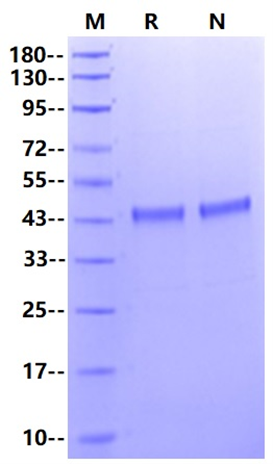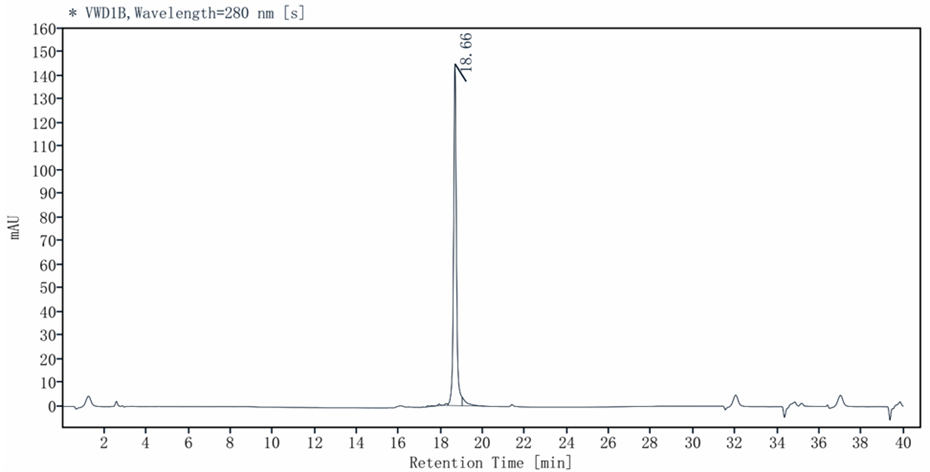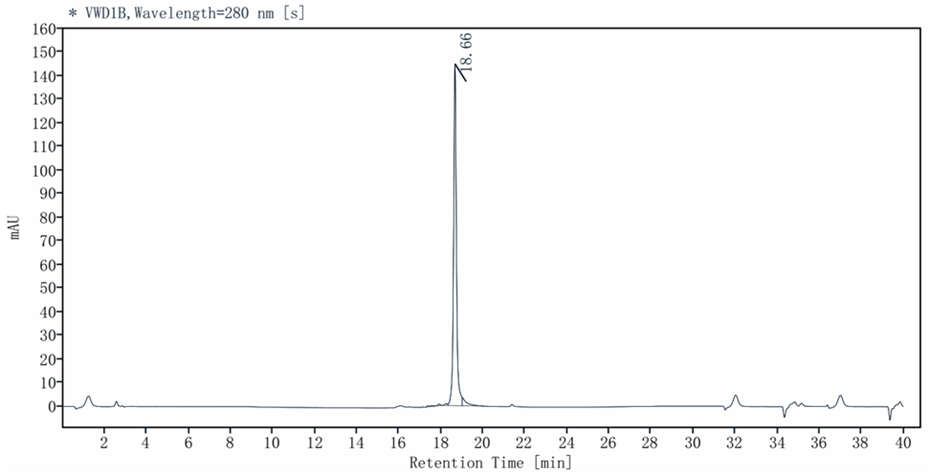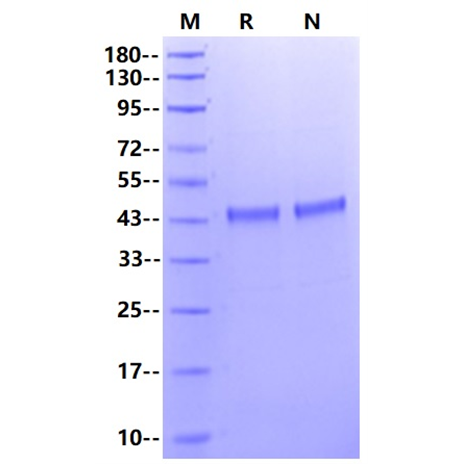Product Details
Product Details
Product Specification
| Species | Human |
| Synonyms | ATG4B, APG4B, AUTL1, AUT like 1 cysteine endopeptidase, Cysteine protease ATG4B, MGC1353 |
| Accession | Q9Y4P1 |
| Amino Acid Sequence | Met1-Leu393, with N-terminal 8*His HHHHHHHHMDAATLTYDTLRFAEFEDFPETSEPVWILGRKYSIFTEKDEILSDVASRLWFTYRKNFPAIGGTGPTSDTGWGCMLRCGQMIFAQALVCRHLGRDWRWTQRKRQPDSYFSVLNAFIDRKDSYYSIHQIAQMGVGEGKSIGQWYGPNTVAQVLKKLAVFDTWSSLAVHIAMDNTVVMEEIRRLCRTSVPCAGATAFPADSDRHCNGFPAGAEVTNRPSPWRPLVLLIPLRLGLTDINEAYVETLKHCFMMPQSLGVIGGKPNSAHYFIGYVGEELIYLDPHTTQPAVEPTDGCFIPDESFHCQHPPCRMSIAELDPSIAVGFFCKTEDDFNDWCQQVKKLSLLGGALPMFELVELQPSHLACPDVLNLSLDSSDVERLERFFDSEDEDFEILSL |
| Expression System | E.coli |
| Molecular Weight | 45kDa |
| Purity | >95% by SDS-PAGE & RP-HPLC |
| Endotoxin | <1EU/μg |
| Conjugation | HRP |
| Tag | His Tag |
| Physical Appearance | Lyophilized Powder |
| Storage Buffer | PBS, pH7.4 |
| Reconstitution | Reconstitute at 0.1-1 mg/ml according to the size in ultrapure water after rapid centrifugation. |
| Stability & Storage | · 12 months from date of receipt, lyophilized powder stored at -20 to -80℃. · 3 months, -20 to -80℃ under sterile conditions after reconstitution. · 1 week, 2 to 8℃ under sterile conditions after reconstitution. · Please avoid repeated freeze-thaw cycles. |
| Reference | 1、Zheng X. et al. (2020) The protease activity of human ATG4B is regulated by reversible oxidative modification. Autophagy. 16(10): 1838-1850. |
Background
Initiation and development of autophagy is modulated by several autophagy-related (ATG) genes, which have been identified in yeast and human. Autophagy begins with the formation and maturation of the double-membraned autophagosomes which engulf and deliver cargoes to lysosomes for degradation. The assembling process of autophagosomes is mediated by a family of core ATG proteins, including two ubiquitin-like systems. First, inactive precursor MAP1LC3/LC3 is cleaved by protease ATG4B at the conserved C-terminal glycine residue. After a set of transfer and activation by ATG7, ATG3 and ATG12-ATG5-ATG16L1, the processed LC3 (LC3-I) finally conjugates with phosphatidylethanolamine (PE) at the exposed glycine site via a covalent bond. So far, lipidated LC3, called LC3-II, has become a biomarker of autophagy because of its characteristic of anchoring into the autophagosome membrane. Upon fusion with lysosomes, ATG4B can, in turn, deconjugate LC3-PE to release LC3-I to the cytoplasm for reuse. Hence, ATG4B serves as a priming and delipidation enzyme whose fine regulation is essential for autophagy process.
Picture
Picture
SDS-PAGE

2μg (R: reducing conditions, N: non-reducing conditions).
RP-HPLC




